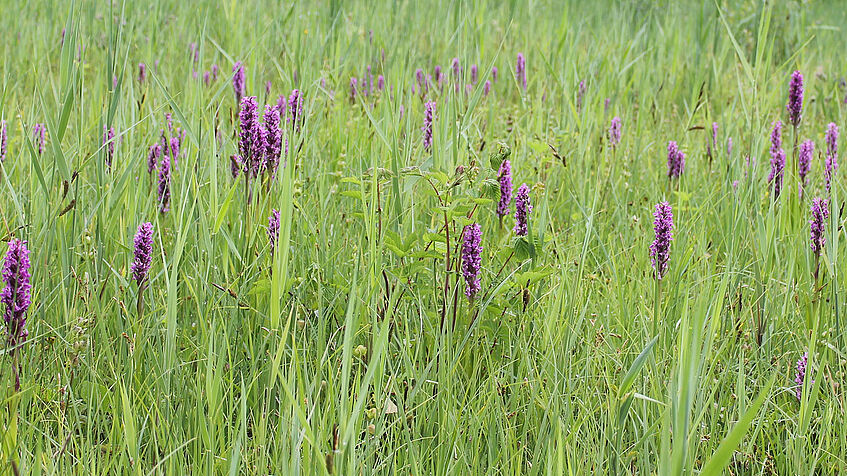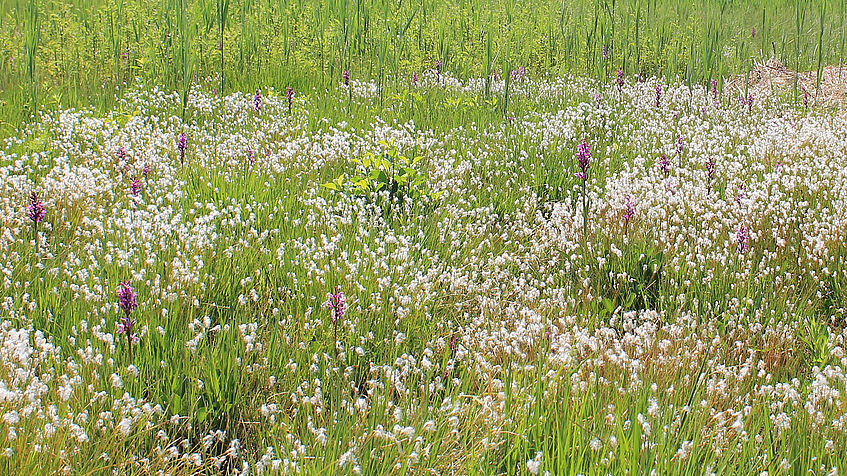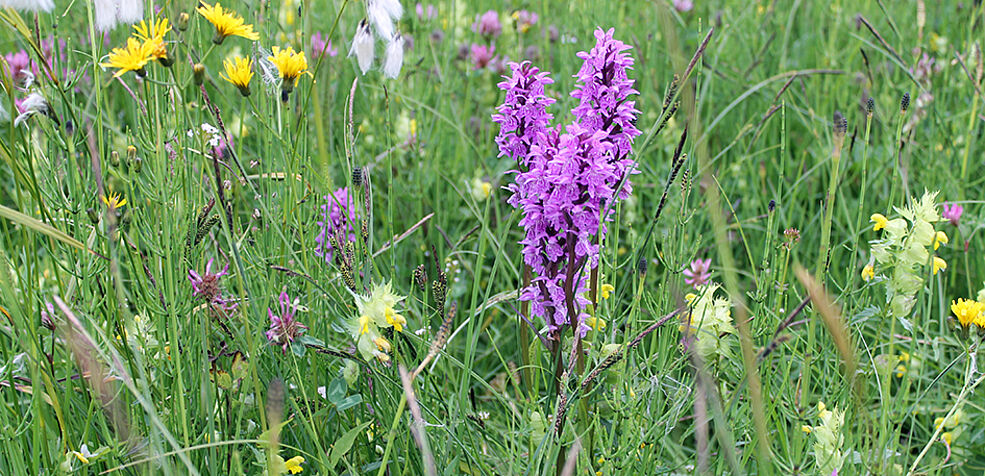Understanding evolution through recurrent allopolyploidisation
Our study system of choice includes sibling orchid allotetraploids from the European Dactylorhiza majalis polyploid complex.
Allotetraploids are allopolyploids
Allopolyploids as Dactylorhiza majalis and D. traunsteineri have been formed through unidirectional hybridization between diploids D. fuchsii (always the maternal parent) and D. incarnata (always the paternal parent). The two allotetraploids have been formed at different times in the last part of the Quaternary (most probably around or after the last glacial maximum) and have different evolutionary histories. Although genetically similar the allopolyploids adapted to divergent environments. They also differ in morphological traits and distribution range.
Dactylorhiza majalis is a vigorous plant, up to 80 cm high, which develops a long and densely flowered inflorescence. Molecular evidence in agreement with morphological patterns, wide geographic distribution and ecological preference suggest D. majalis was derived before the last glaciation. It most probably passed through glacially-induced bottlenecks in southern Eurasia. It has a fairly wide ecological tolerance and occurs at present in damp meadows and fens.
Dactylorhiza traunsteineri is smaller and more slender than D. majalis, with much narrower leaves. The name unites a more recently evolved set of allotetraploids that is more heterogeneous from the molecular point of view. D. traunsteineri currently has its entire distribution within areas that were covered by ice during the last glaciation. Therefore, it most probably originated post-glacially which makes D. traunsteineri younger than D. majalis. At present D. traunsteineri shows a more localized and disjunct distribution. It requires high soil moisture, and grows in calcareous fens and marshes.
Our aim is to identify genetic and epigenetic processes which contributed to the evolution and different adaptation to their native environments of the sibling allopolyploids.
Results
For more information please use the links below.
Study System
Study System
Study System
Parental Divergence
Parental Divergence
Parental Divergence
Population Genomics
Population Genomics
Population Genomics
Evolutionary Epigenetics
Evolutionary Epigenetics
Evolutionary Epigenetics



